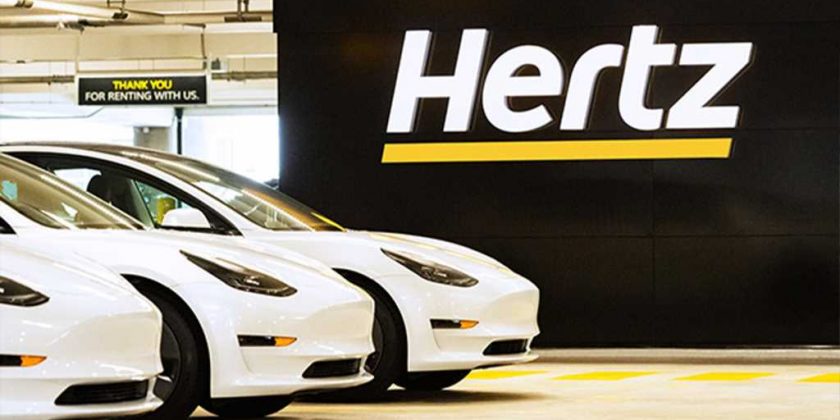Despite the frustrations of the SEC regarding Elon Musk’s tweets and his companies’ stocks, he tweets about his firms business dealings anyway. In the most recent example, Musk responded to a tweet from the Tesla Silicon Valley Club about Tesla’s stock price rising not long after the announcement by Hertz about purchasing a fleet of Model 3s. According to Musk, there is no agreement for any special fleet pricing for Hertz, but that hasn’t scuttled the rental car company’s plans to purchase 100,000 Tesla Model 3 sedans. Musk also said there’s no contract “yet,” which might imply an official agreement is on the way, discount or no.
Buying in Bulk, Automotive Style
First, let’s discuss why fleet purchasing in the auto industry is important. As anyone who’s relatively familiar with bulk purchasing knows, there’s usually a discount for purchasing in large volumes. “The more you buy, the more you save,” isn’t just a bulk item store slogan, it’s also true in the automotive industry. However, unlike bulk stores, fleet automotive purchases involve a contract to ensure that the purchasing party actually buys the vehicles or agrees to some penalty if they renege on the deal, normally by altering the amount of the discount or some other financial penalty. This type of purchasing can happen at the dealer or manufacturer level and typically depends on volume, logistics, or both. Tesla, as we all know, doesn’t have a traditional dealer level and it doesn’t operate like a traditional manufacturer, either.
This isn’t bad for the consumer but Hertz obviously isn’t a normal consumer. It operates around the globe purchasing fleets of cars in numbers that would make most oligarchs and oil barons blush. Yes, a typical rental isn’t as flashy as an exotic, but the amount of vehicles is staggering, to say the least. That’s also why Hertz typically has a vested interest in getting its cars at far less than MSRP. There are some caveats to fleet purchasing, however, for the OEM and potentially for Hertz.
Stock Market Oddity
When Hertz announced that it was adding 100,000 Model 3s to its rental fleet, Tesla’s stock price rose to the point that it hit a $1 trillion market cap. After Musk tweeted that there was no contract with Hertz, shares fell to $1,175 on the morning of November 2, 2021. Though, that fall wasn’t huge as it was trading at just over $1,200 per share prior to that tweet.
It is odd for an automotive manufacturer’s stock to rise at the announcement of a fleet purchase. As CNBC pointed out, “Investors have traditionally frowned upon automakers when they sell large amounts of vehicles to daily rental fleets.” The reason for that is, as CNBC continued to say, fleet purchasing deals are “used to reduce bloating inventories and increase total vehicle deliveries.” Once again, Tesla is anything but the traditional automotive manufacturer.
Overproduction Isn’t a Tesla Problem
As Elon Musk said in an earlier tweet, Tesla “is very much a production ramp problem, not a demand problem.” It isn’t looking to offload cars already produced and which are just sitting around. Its main problem is a need to build its vehicles faster to meet the demand from customers, a problem the company is well familiar with, as well as missing its self-imposed vehicle introduction deadlines. That means, at least for Tesla, offering a fleet for a discounted price is just something it doesn’t need or want at the moment.
Then again, these tweets could be a way for Elon Musk to say Tesla is still a premium brand, and that this large purchase isn’t the same as it would be for a traditional OEM. This was perhaps hinted at in yet another tweet. Or it could just be a case of Musk keeping Tesla in the news to drum up further financial or investor support and free PR for the brand. Yes, we do see the irony in stating that. Either way, it’s tweets such as these that seemingly affect Tesla’s stock price either directly or tangentially that have frustrated the SEC and stock market experts for years.
No Discount Isn’t Stopping Hertz
We reached out to Hertz, who responded via a statement, saying, “As we announced last week, Hertz has made an initial order of 100,000 Tesla electric vehicles and is investing in new EV charging infrastructure across the company’s global operations.” In that same statement, Hertz said deliveries of those Model 3s have already started.
It was also announced that over half of the 100,000 Teslas would be devoted to a partnership underway with Uber whereby the rideshare company’s drivers can rent EVs from Hertz. Should they rent an EV, Uber will offer contract drivers $1 more per trip and up to $4,000 more annually in payments. If successful, Uber and Hertz plan to expand the program to include 150,000 Tesla Model 3s over the next three years.
While it appears that Hertz won’t be seeing any discounts from Tesla, the rental car company said, “We are seeing very strong early demand for Teslas in our rental fleet, which reflects market demand for Tesla vehicles.” This appears to be enough to justify this large purchase, along with the Uber partnership. It’s certainly a bold move given Hertz went bankrupt not so long ago.
Source: Read Full Article
